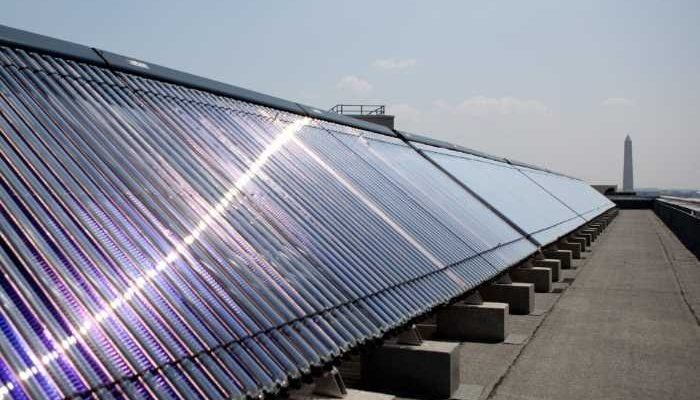When it comes to water heating systems, the oldest is probably a pot of water over a hot wood fire. What you probably didn’t know is that the first solar water heating systems were invented as far back as 1891.
This is a system that’s proven as a source of hot water and efficient workings. But if that’s the case, why don’t we see it used more in homes? What other types of water heaters are there?
Keep reading to make your choice between a solar water heater vs electric vs gas.
Contents
The Different Types of Water Heating Systems
There are three different types of water heater systems. These, too, often get broken down into other types of heating systems. We’re going to cover the three sources of heat first, and some variations on the technologies.
- Solar hot water systems
- Electric hot water systems
- Gas hot water systems
Solar Water Heating System
Solar water heating systems don’t transfer energy into electricity first. This means that it’s more efficient than running an electric hot water heater on a solar power generation system.
The three types of solar collectors are batch collectors (ICS), flat-plate collectors, and evacuated tube collectors.
ICS systems are good for situations where not much hot water is used, but they’re not recommended for climates that are colder.
Flat-plate collectors use series of parallel tubes. Imagine a radiator working in reverse. Each one holds about 40 gallons or 150 liters, so two will cover the water usage of a typical household of four people.
Evacuated tube collectors act similarly to a thermos. A glass or metal tube holding water or heat transfer fluid is shrouded by a larger glass tube under vacuum. They even work in subzero temperatures and individual tubes get replaced as needed.
This makes evacuated tube collectors the most efficient. You can find out more about installing solar hot water systems here or from a local specialist that works best for your climate.
Electric Water Heating System
Electric water heating systems use electricity that passes through a closed circuit. This is similar to the way a cigarette lighter works in a car or the elements on a stovetop. The difference is that these are put directly in the tank, heating water.
It’s a simple system but has a big problem. Because electricity is flowing through the elements, it causes a reaction with the water that rusts the tank and the elements very quickly.
A sacrificial anode gives the electrons a place to go and to react with oxygen in the tank. As it does this, it rusts instead of the tank.
Gas Water Heating System
Gas water heaters work in two ways. The first is the same as boiling water in a pot, and looks the same as an electric water heater at first glance. The exhaust of the gas flame is funneled upward and expelled through an exhaust pipe.
Tankless gas heaters have a cold water inlet that loops back in forth in parallel rows. A gas flame moves heat across it and expels it through an exhaust line. As the heat rises it heats the water, which gets pumped to where you want it.
Water Heating Systems: A Clear Winner?
The truth is that most water heating systems will work just fine. The issue is that while contractors, architects, and engineers always had the option to use solar, electric, or gas, they often only went with what they already knew.
Now that there are more efficient technologies and options available we don’t need to follow a one-size-fits-all approach. Each region and location has different energy needs, so only you can decide which is best for your home.
Keep reading our articles to find out more home improvement options, advice, and tips!
